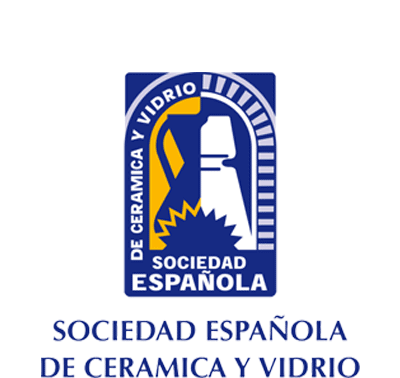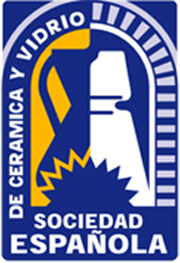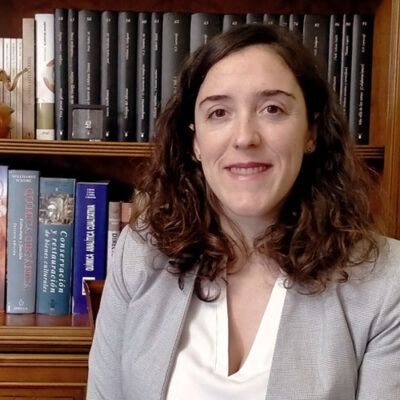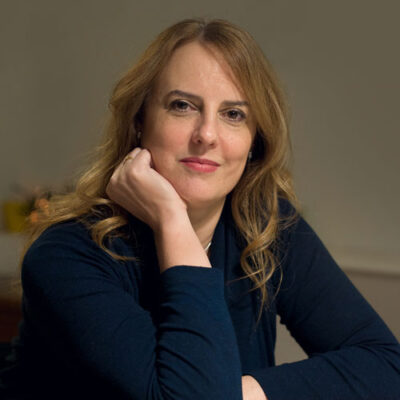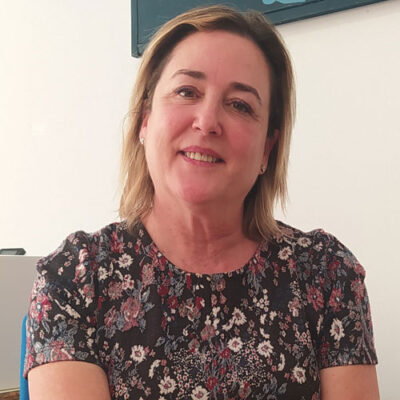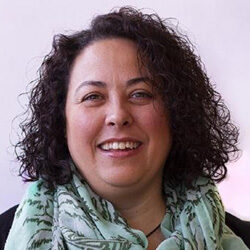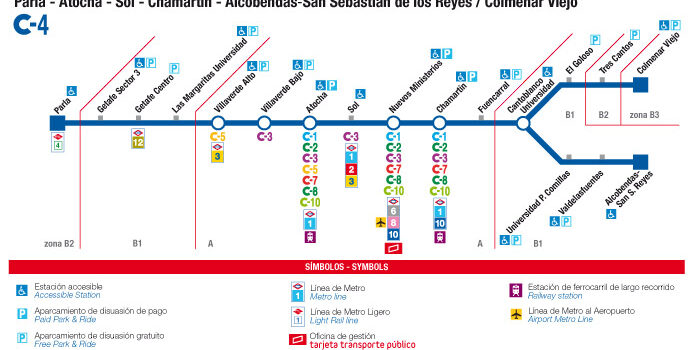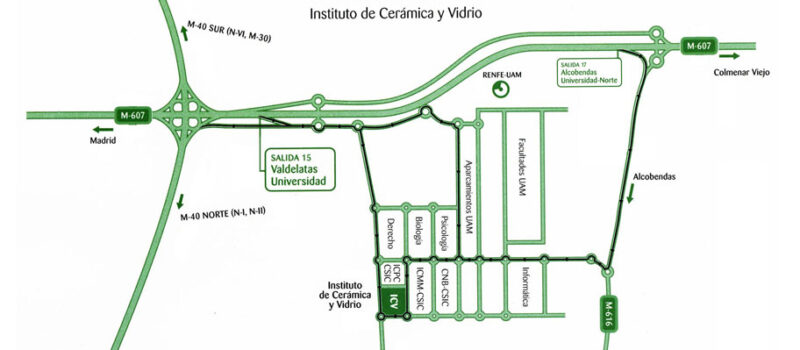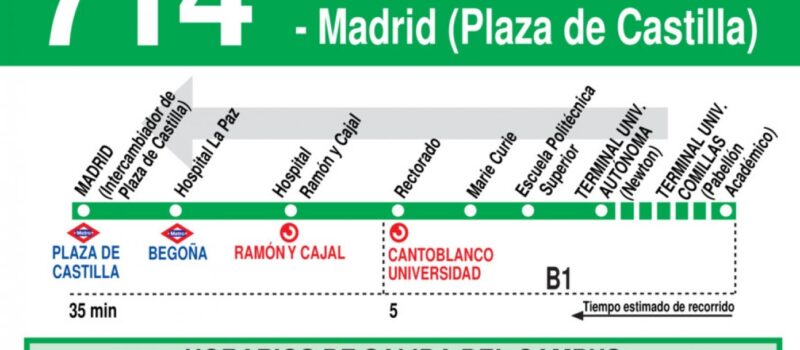Workshop for Young Researchers in Ceramics and Glasses for Medical Applications – Madrid 2022

POSTERS AND ONLINE INFORMATION
POSTERS AND PRE-RECORDED VIDEOS INFORMATION
Those participating through POSTER online presentation, must send a PDF document in A4 size to secv@secv.es before April 15, we will post it in our virtual classroom to discuss it during the event. The posters will be published from May 3 and the virtual classroom will remain open until May 30 to collect and exchange opinions. If the presentation is face-to-face, in addition to sending it in PDF, you must bring the physical document in A0 size (1189×841 mm) to hang it on one of our boards and be able to discuss it on site.
Fire Poster Session
Face-to-face Participants of YCGMed, which contributions have been accepted as posters, must participate in the Fire Poster Session. That session will be celebrated on Friday 6th May at XX. Each participant must prepare a 3-minute talk to highlight the most important points about their poster contribution. They can support the talk by accompanying with a PPT that contains the poster or a maximum of 3 slides.
Those participating with oral presentation in ONLINE mode, must send us their presentation as a PRERECORDED VIDEO in MP4 format with a maximum duration of 12 minutes (+3 min of questions), before April 8. Live online presentations or files that exceed the established 12 minutes will not be accepted. Although the presentation will be reproduced in a canned format during the congress to avoid technical problems, the speaker must be in the corresponding Online Room to answer the questions at the end of his presentation.
This international workshop has been organized to promote dialogue and the exchange of ideas between young researchers and experts in the field of ceramic and glasses with medical applications, with the aim of building new collaboration networks.
On this second edition, the Y-CGMed will be held under the frame of the LVIII Congress of the Ceramic and Glass Spanish Society, in the Ceramic and Glass Institute (ICV-CSIC) on Madrid, Spain.
Dates
5-6 may 2022 Y-CGMed
3-6 may LVIII Congress of the Ceramic and Glass Spanish Society
Venue
ICV-CSIC
Madrid, Spain
(HYBRID)
Abstract Submission
Open for abstracts: 1 dec 2021
Deadline for abstract submission: (EXTENDED) 4 mar 2022
You are still on time (ONLY POSTERS) until 8th April
Registration
Notification of acceptance: 18 mar 2022
Registration start: 15 jan 2022
Deadline for economic registration (face to face): extended to 20 apr 2022
Deadline for economic registration (online): 28 apr 2022
Programme
Thursday, 5 May (C2022 symposium: Bioceramics and bioglasses with medical applications/Y-CGMed)
14:00 – 15:00 Y-CGMed Registration
15:00 – 15:45 Plenary Session
15:45 – 16:15 Welcome
16:15 – 16:45 Invited Speaker
16:45 – 17:15 Invited Speaker
17:15 – 18:00 Oral sessions
18:00 – 18:30 Coffee and exhibition
18:30 – 19:15 Oral sessions
21:30 Gala Dinner
Friday, 6 May
(Y-CGMed)
9:30 – 10:00 Invited Speaker
10:00-11:15 Oral presentations
11:15 – 11:45 Coffee and exhibition
11:45 – 13:10 Invited Speakers / Oral presentations
13:10 – 13:30 Fire Posters Session
13:30 – 15:00 Work lunch and exhibition
15:00 – 16:00 Oral presentations
16:00 – 16:15 Close Ceremony
Organizers and Sponsors
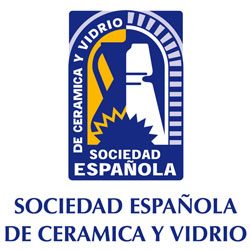
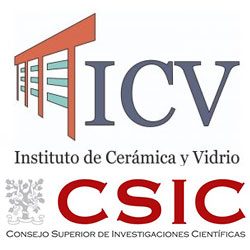
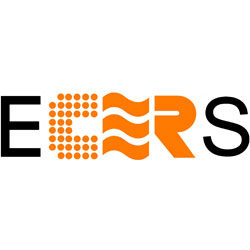
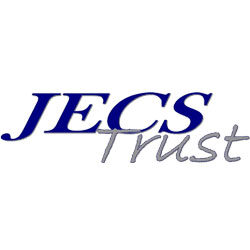
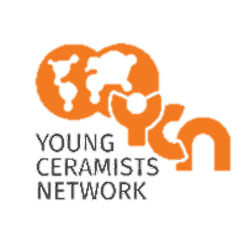
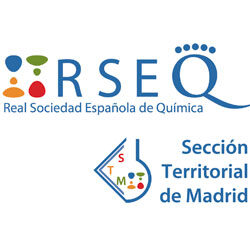
INVITED SPEAKERS
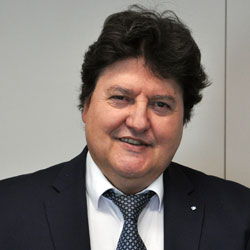
Plenary:
Bioactive glasses (and glass-ceramics) releasing multiple biologically active ions for regenerative medicine
Aldo R. Boccaccini is Professor and Head of the Institute of Biomaterials at University of Erlangen-Nuremberg, Germany. He is also visiting Professor at Imperial College London, UK. He holds a nuclear engineering degree from Instituto Balseiro (Argentina), Dr-Ing. (PhD) from RWTH Aachen University (Germany) and Habilitation from Technical University of Ilmenau (Germany). Prior to his current position, he spent 10 years at Imperial College London, Department of Materials, as Lecturer, Reader and Professor of Materials Science. He has held post-doctoral positions at University of Birmingham (UK) and University of California, San Diego (USA). He was the Head of the Department of Materials Science and Engineering in Erlangen (2017-2019). The research activities of Prof. Boccaccini are in the field of ceramics, glasses and composites for biomedical, functional and/or structural applications. He is the author or co-author of more than 900 scientific papers and 25 book chapters. His work has been cited more than 48,000 times (h = 98, Scopus, “Highly cited researcher” 2014 and 2018). He is the Editor-in-Chief of the journal “Materials Letters” (Elsevier) and serves in the editorial board of more than 10 international journals. Boccaccini has been a visiting professor at different universities around the world. He is a Fellow of the Institute of Materials, Minerals and Mining (IOM3) (UK), the American Ceramic Society, the Society of Glass Technology (UK) and the European Ceramic Society. His achievements have been recognized with several awards including the Materials Prize of the German Materials Society (DGM) in 2015, the Turner Award of International Commission on Glass (2016) and Friedberg Lecture Award (2016) of American Ceramic Society. Boccaccini is also an elected member of the World Academy of Ceramics and of the National Academy of Engineering and Applied Sciences of Germany (acatech) and advisor to the Science and Technology Ministry of Argentina. Boccaccini serves in the Executive Committee of the Federation of European Materials Societies (FEMS) representing the German Materials Society and he has been a member of the Council of the European Society for Biomaterials (ESB) since 2015, currently serving as vice-president. He has served in several review panels of the European Research Council (ERC) and of the German Research Foundation (DFG).
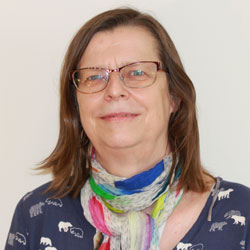
Plenary:
Recent advances in the processing of bioceramic scaffolds
Anne Leriche is Full Professor at the Université Polytechnique Hauts-de-France (UPHF) and researcher at the Laboratory of Advanced Ceramic Materials and Processes (LMCPA) in Maubeuge (France).
She obtained a Master of Science in Chemistry with honors in 1981 and completed her PhD degree based on thesis work in engineering ceramics at Mons (Belgium) and at Leeds (UK) universities, with “summa cum laude” in 1986. She received the diploma “Habilitation à Diriger des Recherches” at UPHF in 1992. She has worked as a researcher at the University of Mons (B) and at the Belgian Ceramic Research Centre in Mons (B), as a research leader at Neoceram, a start-up company specialized in oxide ceramics and joined the UPHF in 1990. She led the laboratory from 1999 to 2016. She has supervised 21 PhD students, participated in several European projects, published 210 papers or proceedings and presented 38 invited lectures. She has served as the President of the French Ceramic Society, of the European Ceramic Society, of the JECS Trust and as Board Member of the Belgian Ceramic Society. She was elected member of the World Academy of Ceramics in 2011, Fellow of the European Ceramic Society in 2013 and she received ECerS Stuijts Award in 2017. She was instrumental to initiate closer and stronger engagement with the ACerS by initiating the ACerS-ECerS Student exchange program (2013) and supporting the attendance of European young researchers to the ACerS Winter Workshops. She received the first ACerS-ECerS Award in 2020.
Main of her research topics are linked to ceramic microstructural control during conventional as well as field-assisted or microwave sintering. Today, she has particular interest in processing functionalized calcium phosphate bioceramics with tailored porosity and interlocking microstructure using different manufacturing methods.
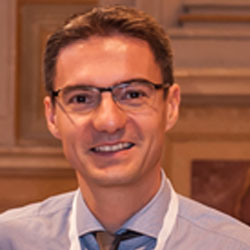
After receiving his PhD in 1996 (Mechanical properties of biomedical grade zirconia), Jérôme Chevalier first became Ceramic Engineer in Saint-Gobain Group, on biomedical applications of ceramics. In 1997, he joined the National Institute of Applied Sciences (INSA-Lyon), in Villeurbanne, as assistant Professor, then full Professor in 2004. He is currently Director of the Carnot Institute Ingenierie@Lyon, which gathers 13 academic laboratories and 2 technical centers (more than 1300 researchers). His research activity is focused on ceramics, from their processing to their mechanical and functional properties. He is especially recognized for his work on the mechanical and fatigue behavior of ceramics, on zirconia-based ceramics and composites, and more generally on bio-ceramics. He has published more than 250 international papers with a review process, 10 review papers in journals and encyclopedia, 4 book chapters. He is co-author of 10 patents and his research has led to the commercialization of 6 medical products. More than 14.000 papers have cited his work according to Google Scholar (h factor equal to 55). Jérôme Chevalier has been member of the ‘Institut Universitaire de France’ from 2009 to 2014, and he is Senior Editor of the Journal of the European Ceramic Society. He was awarded in 2015 by the CNRS with the prestigious ‘Innovation Medal’ and by the French Society of Materials with the ‘Sainte Claire Deville’ medal in 2017. He is Fellow of the European Ceramic Society and Member of the Academy of Ceramics.
Organizing Committee
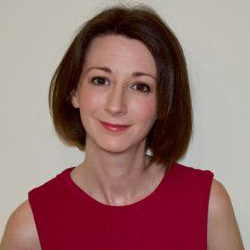
María Canillas
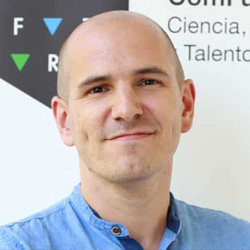
David González Calatayud
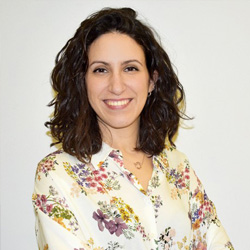
Ana Ferrández
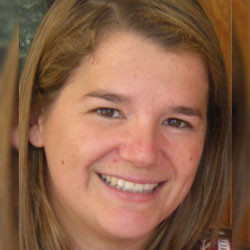
María Rosa Aguilar
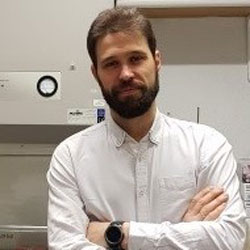
Luis Rojo Olmo
FEES
As this second edition, the Y-CGMed will be held under the frame of the LVIII Congress of the Ceramic and Glass Spanish Society, the congressmen can attend both congresses if they prefer so.
Face to face fees include: Registration, coffee breaks, lunch, Spanish wine cocktail.
Online fees include: Registration.
For SECV and ECerS members, it is possible to apply for Travel Grants:
International participants: up to 250€
Local participants: up to 100€
To apply, you must send after the meeting the documentation below:
ECerS or SECV members certify (write to secv@secv.es or ecers@bcrc.be)
Fill JECSTrust account of travel expenses form
Originals of tickets, invoices, receipts, etc.
Document must be sent in pdf. by mail, but also originals by post mail to Sociedad Española de Cerámica y Vidrio, C. Kelsen, 5, 28049 Madrid. apply you must send to Sociedad Española de Cerámica y Vidrio, C. Kelsen, 5, 28049 Madrid
Travel grants: For students SECV/ECerS members
Up to 100€ for 5 students coming from Spanish institutions
Up to 250€ for 20 students coming from other institutions
Registration form
Payment can be done by Credit Card or Bank transfer. Please fill out the following form and wait for further instructions.
VENUE
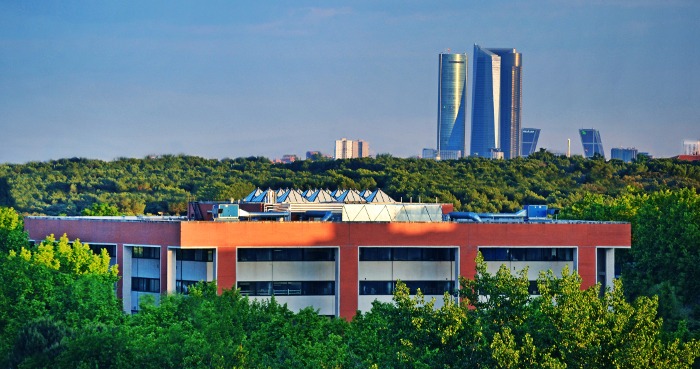
CERAMIC AND GLASS INSTITUTE (ICV-CSIC)
ROUTES AND ACCOMMODATION
The headquarter is located within the complex of Centers that the CSIC has on the Campus of the Autonomous University of Madrid in Cantoblanco. The areas of Chamartín, Fuencarral, Tres Cantos, Nuevos Ministerios, Sol and Atocha are connected to the venue by Cercanías train through line C4 towards Alcobendas-San Sebastián de los Reyes and Colmenar Viejo, with a frequency of 5 min between trains, so we recommend booking hotels in these areas. The hotel offer in any of these areas is quite wide.
There is also bus 714 from the Plaza de Castilla interchange with a stop in Cantoblanco.
